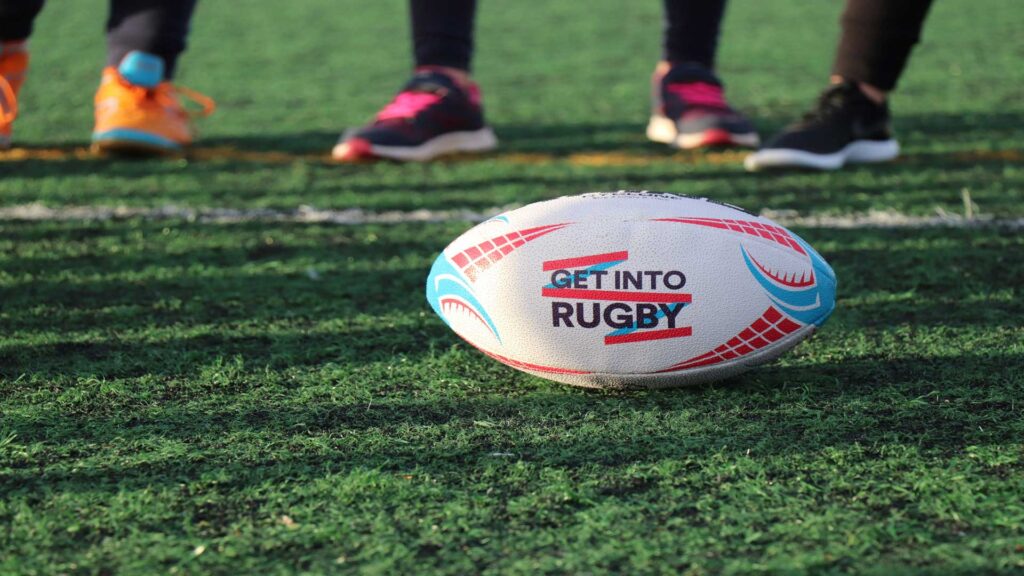If you’ve ever watched a rugby game, you’ve probably wondered how long it actually lasts. Unlike sports that have timeouts, commercial breaks, and extended periods of play, rugby operates on a more straightforward timing system. The duration of a rugby match is consistent across most formats, though certain variations exist depending on the level of play. Let’s break down how long a rugby match really is and explore some of the nuances surrounding game length and timing.
Standard Game Length: Rugby Union
In rugby union, the most popular form of the sport, a standard match lasts for 80 minutes. This is divided into two halves of 40 minutes each. There’s also a halftime interval, typically lasting around 10 minutes. So, all in all, you’re looking at about 90 minutes of total time for a match, including the break.
The clock in rugby runs continuously, much like soccer. Once the referee blows the whistle to start the game, the clock doesn’t stop for most situations, even if the ball goes out of play or a player is injured. However, there are exceptions—if a serious injury occurs, the referee can pause the clock while medical staff attend to the player, or if there’s any sort of prolonged stoppage that would unfairly affect the flow of the game.
Stoppage Time and Extra Time
Although the clock doesn’t stop often, there is still room for stoppage time. At the end of each half, the referee may decide to add extra minutes, known as “injury time” or “stoppage time,” based on delays that occurred during the half. This extra time allows for a fair conclusion to the half without penalizing a team for time lost due to injuries or other disruptions.
Occasionally, if the match is tied and must produce a winner (such as in tournament play), extra time is added after the regular 80 minutes. Extra time consists of two 10-minute periods. If the game is still tied after that, some competitions use a sudden-death scenario, where the first team to score wins. These moments are intense, with both teams fighting for every inch of ground.
Rugby Sevens: A Shorter Variation
Rugby sevens, a fast-paced version of the sport, has a different timing structure. Instead of the full 80 minutes, a rugby sevens match lasts just 14 minutes—two halves of 7 minutes each, with a very short halftime break of around 2 minutes. However, finals matches in rugby sevens tournaments are often extended to 20 minutes, split into two 10-minute halves.
This shortened format leads to a rapid, high-energy game that demands extreme fitness from players, as there’s no time to rest. The shorter duration also makes rugby sevens perfect for tournament play, with teams playing multiple matches in a single day. It’s a sprint compared to the marathon of a traditional rugby union match, but the skills and strategies needed are no less impressive.
Variations Across Different Leagues
The duration of rugby matches can vary slightly depending on the league or tournament. For example, in youth rugby or lower-level competitions, matches might be shorter to accommodate younger players or less experienced teams. You might see matches lasting 60 minutes or less, with shorter halves and sometimes no added stoppage time. It’s all about maintaining a fair and enjoyable pace for the athletes involved.
At the international level, though, you can expect every rugby union match to adhere to the standard 80-minute length, regardless of whether it’s a test match, World Cup game, or professional club match.
What About Halftime?
Halftime in rugby is a brief respite, giving players just enough time to catch their breath, refuel with some water, and regroup with their coaches. Typically, halftime lasts for 10 minutes, though this can vary slightly depending on the level of play or the event.
During halftime, coaches often make quick adjustments to strategy, address any glaring issues from the first half, and motivate their players to step up for the second half. It’s a pivotal time for teams to reflect on the game so far and make changes that could turn the tide in their favor.
Why Understanding Timing Matters in Rugby
Timing in rugby isn’t just about knowing when the game starts and stops—it’s crucial to the strategy of the game. Teams must manage their energy throughout the match, knowing when to press for an advantage and when to hold back. A rugby match can feel long, especially for players who are constantly in motion, tackling, passing, and sprinting.
Coaches often emphasize pacing, ensuring that players don’t burn themselves out too early. As the clock winds down, fatigue sets in, and those final 10 minutes of the match can make or break the result. That’s why timing and game management are essential components of rugby tactics.
Overtime in Rugby Union Competitions
While regular-season games usually don’t go into overtime, some competitions require a winner to be decided. In these cases, overtime rugby rules apply. Typically, teams will play two 10-minute halves of extra time. If there’s still no winner, the game might go to a “golden point” rule, where the first team to score wins the match.
Managing Game Length as a Viewer
For fans, understanding the length of a rugby match helps in planning their viewing experience. You’ll need roughly two hours to watch a complete rugby union game, factoring in stoppage time and any potential extra minutes at the end. Rugby sevens matches are much quicker—each game can be over in about 20 minutes. This shorter format lends itself to tournament days, where viewers can see multiple games in succession.
Whether watching a full rugby union match or a quick rugby sevens showdown, the pace and intensity of the sport ensure that fans stay engaged from start to finish.
Factoring in External Variables
While most rugby matches follow the standard timing rules, external factors can sometimes come into play. Weather conditions, particularly in outdoor stadiums, can impact the flow of the game. Heavy rain, snow, or extreme heat can cause stoppages or affect how long certain phases of play last. In some rare cases, matches may even be shortened or rescheduled due to severe weather conditions. Similarly, injuries on the field might lead to extended breaks while players receive medical attention.
In cases like these, referees have the authority to adjust the timing as necessary, ensuring player safety and fairness in the game. However, these situations are relatively rare, and most rugby matches proceed as scheduled, with the standard 80 minutes of play.
Conclusion
Understanding the length and timing of a rugby match gives you insight into the rhythm of the game. Whether it’s the full 80-minute battle of rugby union or the rapid-fire 14 minutes of rugby sevens, each format demands something different from its players. For fans, knowing how long a match lasts helps create a more immersive viewing experience, allowing you to appreciate the endurance, strategy, and excitement that rugby offers.
Frequently Asked Questions
How long does a standard rugby match last?
A standard rugby match lasts 80 minutes, divided into two halves of 40 minutes each.
How many halves are in a rugby match, and how long is each half?
A rugby match has two halves, with each half lasting 40 minutes.
How long is halftime in rugby?
Halftime in rugby lasts for 10 minutes, giving players a brief rest before the second half.
Can the duration of a rugby match be extended?
The match duration can be extended if time is added for injuries, stoppages, or extra time during knockout stages in tournaments. However, the regular time remains 80 minutes.
How does injury time work in rugby?
Injury time, or “stoppage time,” is added by the referee at the end of each half to compensate for delays due to injuries or other stoppages. The game clock stops during these interruptions.
What is “stoppage time” in rugby, and how is it handled?
Stoppage time refers to the additional time added to the game for any breaks in play, such as injuries or substitutions. The referee controls the clock and decides when to add extra time.
Is there extra time in rugby, and when is it used?
Extra time is used in knockout matches where a winner must be decided. If the game ends in a tie, two 10-minute halves of extra time are played.
How long are rugby sevens matches compared to standard rugby matches?
Rugby sevens matches are much shorter, lasting only 14 minutes in total. Each half is 7 minutes long, with a 2-minute halftime.
How does the timing differ in youth rugby matches?
Youth rugby matches often have shorter durations, depending on the age group. For younger players, games can range from 20 to 40 minutes in total, divided into shorter halves.
Does the clock stop during substitutions in rugby?
Yes, the clock typically stops for player substitutions, particularly in professional or international matches, to ensure fair play and accurate timing.
How are timeouts handled in rugby?
There are no formal timeouts in rugby. The clock only stops for injuries, substitutions, or referee decisions, not for team strategy discussions.
How long do rugby matches last in major tournaments, like the Rugby World Cup?
Rugby World Cup matches follow the same format as regular matches: 80 minutes of play. However, knockout stage matches may include extra time if needed.
What happens if a rugby match ends in a tie?
In regular league matches, a tie may stand as the final result. In knockout tournaments, extra time, sudden death, or a kicking competition (depending on the tournament rules) may be used to determine the winner.
What is the difference between regular time and extra time in knockout rugby matches?
Regular time consists of 80 minutes of play. If the match is tied in a knockout game, two halves of 10-minute extra time are played. If the tie persists, some tournaments use sudden death or other methods to determine a winner.
How is overtime or sudden death handled in rugby?
In some tournaments, if the match is tied after extra time, a sudden death period may follow, where the first team to score wins the match.
Can the referee add extra time at the end of a rugby match?
Yes, the referee can add extra time, known as “injury time” or “stoppage time,” for any delays during the match, such as injuries or prolonged stoppages.
How is timekeeping managed in rugby matches?
The referee manages the official time during a rugby match. There is also a stadium clock, but only the referee’s time is considered official.
How does weather or external factors affect the timing of a rugby match?
Severe weather conditions may cause delays, but the match time generally stays the same. In extreme cases, a match can be postponed or abandoned if player safety is at risk.
How long does a rugby match last at the amateur or club level?
Amateur and club rugby matches generally follow the same 80-minute format, though certain leagues may adjust timings based on player fitness or specific rules.
Is the match time the same for both men’s and women’s rugby?
Yes, both men’s and women’s rugby matches are 80 minutes long, with two halves of 40 minutes each.



